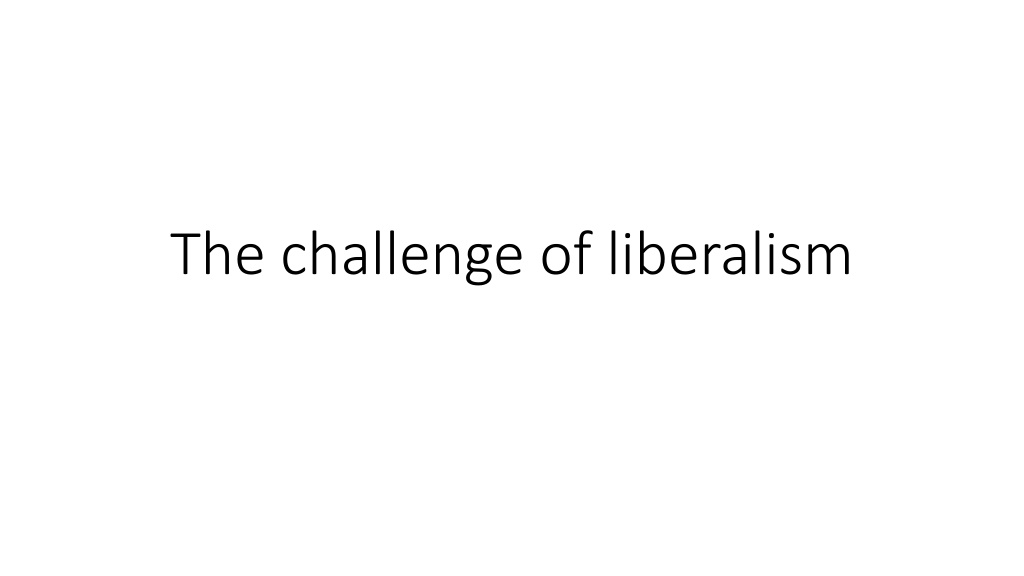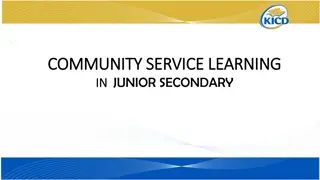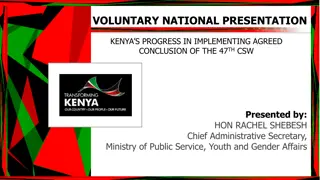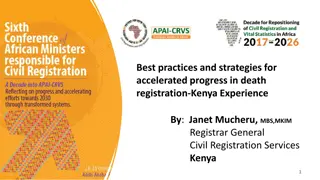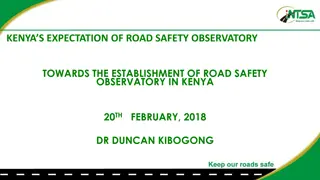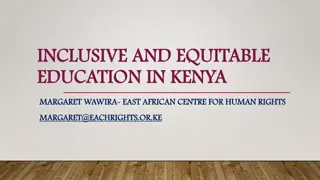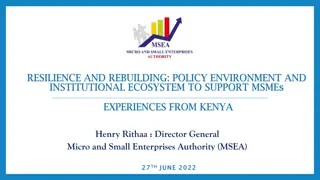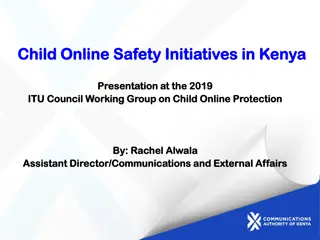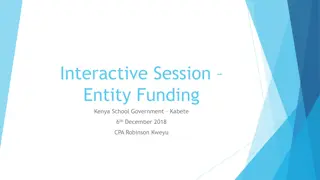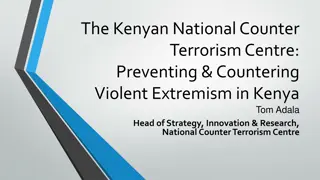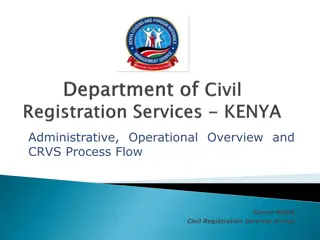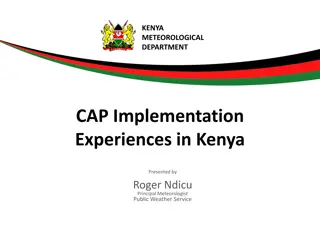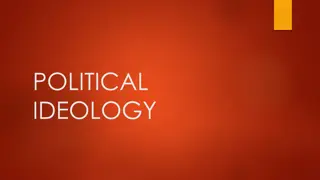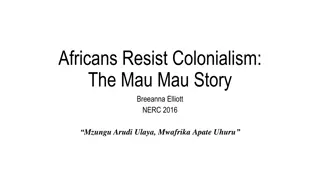Exploring the Challenge of Liberalism in Kenya
Delve into the complexities of liberalism in Kenya, examining its latent presence, historical roots, and impact on religious beliefs. Explore the echoes and trends within churches influenced by cultural shifts, postmodernism, and spiritual warfare, while navigating the blurred lines between tradition and modernity. Discover how personal backgrounds shape organizational interests in apprenticeships, faithful teaching, and servant leadership, amidst a landscape of evolving ideologies and conflicting narratives.
Download Presentation

Please find below an Image/Link to download the presentation.
The content on the website is provided AS IS for your information and personal use only. It may not be sold, licensed, or shared on other websites without obtaining consent from the author. Download presentation by click this link. If you encounter any issues during the download, it is possible that the publisher has removed the file from their server.
E N D
Presentation Transcript
Organisational interest o Apprenticeships for fresh graduates Faithful Bible Teaching Servant Leadership o Training for pastors and church workers
Liberalism in Kenya A confused term
Liberalism in Kenya A confused term Latent liberalism
Latent: adj. 1. concealed, dormant. 2. existing but not developed or manifest [Latin latere be hidden ] (Concise Oxford English Dictionary)
Liberalism in Kenya A confused term Latent liberalism Plenty of exceptions
What is liberalism? A brief history Friedrich Schleiermacher (1768-1834)
What is liberalism? A brief history Attempt to make Christianity acceptable to modern man Personal religious experience not history Bible as the word of men not the Word of God Hard empiricism / agnosticism / search for the historical Jesus / moralism Expiation but not propitiation Social gospel Church replaces Christ
Echoes & trends: Do we see these things in our churches or latent or threatening?
Echoes & trends: Influences: ATR optimism cultural shifts & postmodernism internet access theologians, theological colleges & money spiritual warfare
"These narratives [of liberation] have been for me the bearer of good news. Therefore inspite of entrenched patriarchal and ethnocentric prepositions [sic] of the Bible, it is a book I cannot dispense with and indeed may not since I remain in the Christian community and that community means more to me than my personal hurts. The Bible is an extremely dangerous book. We have to be careful with its blanket usage. We are re-reading, not re-writing the Bible. We are also reading supplementary texts. Revelation has not ended. We believe God is in control and working in both men and women. (Prof. Mercy Oduyoye, Ghana)
Suspicion [as a model of Bible reading alongside cultural hermeneutics and neo-orthodox hermeneutics] is based on the fact of writing history, and the idea that history is written from the perspective of victors Rev. (Dr.) Lydia Mwaniki, lecturer in gender and theology at St. Paul s University Limuru
Echoes & trends: 1. Experience is everything
Echoes & trends: 1. Experience is everything 2. The Bible beside or below but not above me The bible is never really on the driving seat of most of our evangelicals. It is a tool to be used from time to time-a slave, not a master to our teaching and preaching. (Harrison Mungai describing the contemporary scene)
Echoes & trends: 1. Experience is everything 2. The Bible beside or below but not above me 3. Reading history as parable
Echoes & trends: 1. Experience is everything 2. The Bible beside or below but not above me 3. Reading history as parable 4. Discussion but not declaration
Echoes & trends: 1. Experience is everything 2. The Bible beside or below but not above me 3. Reading history as parable 4. Discussion but not declaration 5. Inclusive gospel and cheap grace
Echoes & trends: 1. Experience is everything 2. The Bible beside or below but not above me 3. Reading history as parable 4. Discussion but not declaration 5. Inclusive gospel and cheap grace 6. Culture following / hermeneutic of comfortableness-with The bible s truths are embraced to the extent they don t rub us the wrong way. When they do, we take the same western path It was Paul s culture. Then we begin to pick and mix what we can use and what to dump pragmatism (Harrison Mungai describing the contemporary scene)
Echoes & trends: 1. Experience is everything 2. The Bible beside or below but not above me 3. Reading history as parable 4. Discussion but not declaration 5. Inclusive gospel and cheap grace 6. Culture following / hermeneutic of comfortableness-with 7. High sacramentalism / crypto-Catholicism 8. Ecumenism; Inter-faith worship/prayer 9. Social gospel 10.Language bending
How do we respond? Exposure Practice Inoculation Explicit teaching of doctrine of Scripture, from the Scriptures Luke 17:28-31 Luke 24:25-27, 46-47 Acts 9:15 Acts 26:22-23 Acts 28:23
